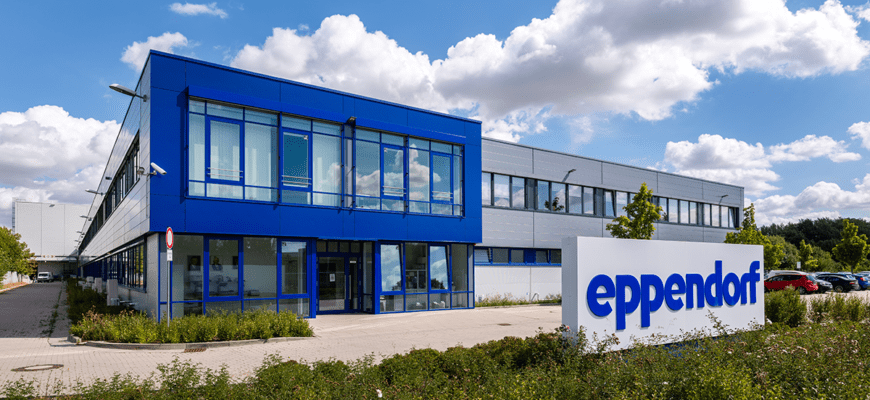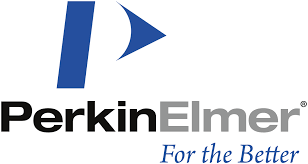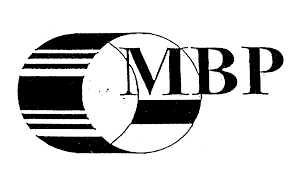Eppendorf: Leading Innovation in Laboratory Equipment and Life Sciences
Since its inception in 1945, Eppendorf has become synonymous with precision, reliability, and innovation in laboratory equipment worldwide. This German powerhouse has transformed modern laboratory practices through its comprehensive range of instruments, consumables, and services that facilitate research and diagnostic processes across numerous scientific disciplines.
Company Background and History
Eppendorf was founded in 1945 by Heinrich Netheler and Hans Hinz in the Hamburg district of Eppendorf, Germany, initially as a medical device workshop on the grounds of the University Hospital Eppendorf. The founders began by developing pioneering medical equipment, including the first ultrasound device and a stimulator for diagnosing and treating muscle and nerve damage. They also invented an electrical thermometer called “Thermorapid” that revolutionized body temperature measurement by providing readings in just seconds.
In 1954, the company was renamed “Netheler & Hinz GmbH,” marking the beginning of its evolution into the global enterprise it is today. The company’s growth trajectory took a significant turn in the 1960s when it pioneered the commercialization of micro-pipettes in 1961, followed by the launch of what are now universally known as “Eppendorf tubes” in 1963, and microcentrifuges in 1964. These innovations collectively established what the company refers to as the “microliter system,” fundamentally changing how laboratory work is conducted around the world.
Today, Eppendorf is a private company headquartered in Hamburg, Germany, with approximately 5,000 employees and an annual revenue of €1.23 billion as of 2022. The company operates globally, serving laboratories across academic research, pharmaceutical, biotechnology, chemical, food, clinical, environmental, and forensic sectors.
Core Product Lines
Eppendorf organizes its extensive product portfolio into three primary divisions:
Liquid Handling
The liquid handling division represents one of Eppendorf’s most recognized product categories, featuring:
- Pipettes and Pipettors: Manual and electronic micropipettes, including the popular Research Plus and Reference 2 series, known for their ergonomic design and precision
- Automated Pipetting Systems: Advanced solutions for high-throughput applications
- Pipette Tips: The renowned epT.I.P.S. line, available in various formats including reloads, boxes, and filter tips
- Dispensers: Precise tools for repetitive dispensing operations
The company’s pipettes are particularly celebrated for their ergonomic design, with users frequently citing reduced strain during extended pipetting sessions compared to competing brands. The distinctive clicking sound of Eppendorf pipettes has become iconic in laboratories worldwide.
Sample Handling
This division encompasses a wide range of equipment for processing and storing samples:
- Centrifuges: Microcentrifuges (like the 5425 model), benchtop centrifuges, and high-speed models designed for various laboratory applications
- Freezers: Ultra-low temperature storage solutions for preserving sensitive samples
- Laboratory Tubes: The famous Eppendorf tubes, available in various sizes including the traditional 1.5 mL, 5.0 mL, and conical tubes
- Plates and Storage Systems: Microplates, deepwell plates, PCR plates, and storage boxes for organized sample management
Eppendorf centrifuges are noted for their reliability, though user feedback suggests varying experiences between older and newer models. Some researchers have observed that older models (20+ years) demonstrate exceptional durability, while some newer versions have attracted criticism regarding noise levels and heating issues.
Cell Handling
The cell handling division provides solutions for cell culture and manipulation:
- Bioreactors and Fermentors: Systems for cell cultivation and bioprocess development
- CO2 Incubators: Controlled environments for cell growth
- Thermomixers: Devices like the ThermoMixer C for temperature-controlled mixing applications
- Shakers and Cell Manipulation Systems: Equipment for cellular research applications
Technological Innovations and Contributions
Eppendorf has consistently contributed to advances in laboratory technology since its founding. Key innovations include:
- The introduction of the first commercial micropipettes in 1961, standardizing precise liquid handling in molecular biology and biochemistry
- Development of the iconic Eppendorf tube in 1963, which has become a laboratory staple worldwide
- Launch of microcentrifuges in 1964, enabling rapid processing of small-volume samples
- Creation of integrated systems for laboratory workflow optimization, including automated liquid handling platforms
These innovations have significantly improved laboratory efficiency and experimental reproducibility across scientific disciplines. The company’s commitment to precision engineering is evident in the durability of their products, with many users reporting decades of reliable service from Eppendorf equipment.
Recent Developments and Sustainability Initiatives
Eppendorf continues to evolve, with several notable recent developments:
- The appointment of Dr. Christine Munz as the new CEO, effective October 1, 2024, succeeding Dr. Wilhelm Plüster who will take on other strategic roles within the company
- Strategic investment in BigOmics Analytics, a Swiss biodata analytics startup, demonstrating Eppendorf’s commitment to advancing digital solutions for biodata analysis
- Partnership with Neste to develop laboratory products from renewable materials, including pipette tip racks produced from residual materials from contact lens manufacturing
- Introduction of pipette tips made from vegetable oils, representing a shift toward more environmentally friendly materials in laboratory consumables
These initiatives reflect Eppendorf’s increasing focus on sustainability and digitalization in laboratory processes, addressing growing environmental concerns within the scientific community.
Market Position and User Perspectives
Eppendorf maintains a prominent position in the laboratory equipment market, competing with other major brands such as Thermo Fisher/Finnpipette, Gilson, Rainin, Sartorius, Bio-Rad, and Beckman.
User perspectives on Eppendorf products vary, though many researchers express strong brand loyalty:
- Pipettes: Widely praised for ergonomics and precision, with many users expressing a strong preference for Eppendorf over competitors
- Centrifuges: Generally well-regarded, though with mixed reviews comparing older and newer models
- Consumables: Recognized for quality, though often at premium price points
Calibration technicians reportedly rank Eppendorf pipettes consistently at the top for maintaining calibration accuracy over time. This reliability factor contributes significantly to the brand’s strong reputation among laboratory professionals.
Applications in Research and Clinical Settings
Eppendorf products are utilized across diverse scientific applications:
- Molecular Biology: PCR preparation, DNA/RNA extraction, and sequencing workflows
- Cell Biology: Cell culture, isolation, and analysis procedures
- Biochemistry: Enzyme assays, protein purification, and analytical techniques
- Clinical Diagnostics: Sample preparation and analysis in medical laboratories
- Pharmaceutical Research: Drug discovery and development processes
A specific example from the search results describes using an Eppendorf centrifuge (model 5702R) for 4 minutes at 4000 RPM to separate blood serum for biochemical analysis in rabbit studies focusing on digestive apparatus interventions. This highlights the precision and reliability required in research applications.
Conclusion
Eppendorf has established itself as a cornerstone of laboratory science through decades of innovation, quality manufacturing, and responsive product development. From its humble beginnings in post-war Germany to its current status as a global life science leader, the company continues to shape how scientific research is conducted through its comprehensive range of laboratory solutions.
With ongoing investments in sustainability initiatives and digital technologies, Eppendorf is well-positioned to address the evolving needs of modern laboratories while maintaining its commitment to precision and reliability. For research institutions, clinical facilities, and industrial laboratories seeking dependable equipment, Eppendorf remains a trusted partner in scientific advancement.
Key Products for Laboratory Setup
When establishing or upgrading a laboratory, consider these essential Eppendorf offerings:
- Research plus pipettes (2-20 μL, 20-200 μL, 100-1000 μL ranges) for precise liquid handling
- ThermoMixer C for temperature-controlled mixing applications
- 5425 centrifuge for routine separation procedures
- Safe-Lock microcentrifuge tubes (1.5 mL) for secure sample storage
- Ultra-low temperature freezers for long-term sample preservation
These core products provide a foundation for accurate, reliable laboratory work across multiple scientific disciplines.









